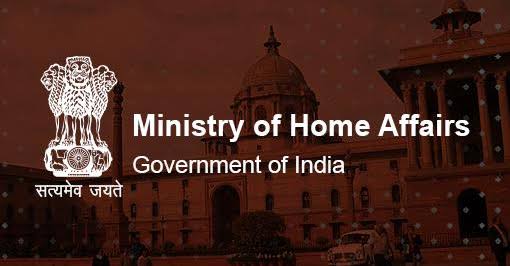BY DEFENCE JOURNALIST SAHIL | T.I.N. NETWORK
After New Delhi, Chinese Foreign Minister Wang Yi Heads to Islamabad for 6th Pakistan-China Strategic Dialogue
New Delhi/Islamabad | August 2025 — In a move that underscores Beijing’s delicate balancing act in South Asia, Chinese Foreign Minister and Politburo member Wang Yi is set to arrive in Islamabad on 21 August 2025 for the 6th Pakistan-China Foreign Ministers’ Strategic Dialogue. His visit follows closely after his talks in New Delhi with Prime Minister Narendra Modi, External Affairs Minister Dr. S. Jaishankar, and National Security Advisor Ajit Doval — a sequence of engagements that reflects China’s intent to recalibrate ties simultaneously with both India and Pakistan amid a shifting geopolitical order.
The Pakistani Ministry of Foreign Affairs confirmed the visit through an official curtain raiser, noting that Wang Yi will co-chair the dialogue with Pakistan’s Deputy Prime Minister and Foreign Minister Senator Mohammad Ishaq Dar. The meeting is projected to focus on reaffirming the “All-Weather Strategic Cooperative Partnership,” strengthening economic and trade cooperation, and consolidating political trust between the two countries.
The ‘All-Weather’ Narrative
Islamabad and Beijing have long described their ties as an “All-Weather Friendship,” a phrase that has become shorthand for a relationship rooted in security, strategic alignment, and the massive China-Pakistan Economic Corridor (CPEC). This dialogue is expected to build on these pillars, particularly at a time when Pakistan is facing economic fragility and regional security pressures.
China has consistently signalled its intent to back Pakistan on international platforms, while Pakistan continues to view Beijing as its most reliable external partner, often calling the relationship “higher than the Himalayas, deeper than the oceans, and sweeter than honey.”
Strategic Timing: Between Delhi and Islamabad
What makes this visit particularly significant is its timing. Wang Yi’s stop in New Delhi earlier this week saw him carry an invitation from President Xi Jinping to Prime Minister Modi for the upcoming Shanghai Cooperation Organisation (SCO) Summit in Tianjin, and he also co-chaired the 24th round of boundary talks with NSA Doval.
For India, Wang Yi’s presence was an opportunity to underline that peace along the Line of Actual Control (LAC) remains the essential foundation for the relationship. Modi reaffirmed India’s commitment to a “fair, reasonable, and mutually acceptable” solution to the boundary dispute, even as trade and diplomatic exchanges cautiously progress.
Beijing’s outreach to New Delhi followed by Islamabad reflects a careful choreography — a bid to maintain leverage and influence with both sides of the subcontinental divide, even as tensions simmer on the India-China frontier and across the India-Pakistan border.
CPEC and Security Dimensions
For Pakistan, Wang Yi’s visit is also about reaffirming China’s economic commitment through CPEC Phase-II projects — ranging from energy infrastructure to industrial zones across Punjab, Sindh, and Balochistan. Security of Chinese personnel in Pakistan, however, remains a major concern, with repeated attacks by insurgent groups like the Balochistan Liberation Army (BLA) targeting Chinese engineers, workers, and convoys.
Sources in Islamabad suggest that security guarantees and counter-terror cooperation will feature prominently in the dialogue. Beijing has made clear that the safety of its citizens is non-negotiable, while Pakistan has assured additional deployments and tighter coordination between its security forces and Chinese counterparts.
Regional and Global Stakes
The Wang Yi-Ishaq Dar dialogue is also expected to discuss Afghanistan, counter-terrorism frameworks, and broader regional stability. With the SCO Summit around the corner, China is keen to project its role as a stabiliser in South Asia, while Pakistan seeks to reinforce its indispensability in China’s regional calculus.
For India, these developments will be watched closely. New Delhi has consistently flagged the CPEC’s passage through Pakistan-occupied Kashmir (PoK) as a violation of its sovereignty. India also remains wary of the deepening military-technological cooperation between China and Pakistan, ranging from fighter jet production to missile systems.
As Wang Yi shuttles between New Delhi and Islamabad within the same week, the symbolism is hard to miss. Beijing is not only reinforcing its role as Pakistan’s closest partner but also keeping doors open with India. This delicate dance illustrates China’s broader strategy — to preserve influence, prevent isolation, and project itself as a central actor in the Asian balance of power.
How India and Pakistan read these moves — and how each capital positions itself ahead of the Tianjin SCO Summit — may well shape the next phase of South Asia’s strategic landscape.
BY DEFENCE JOURNALIST SAHIL | T.I.N. NETWORK
नई दिल्ली के बाद इस्लामाबाद की ओर: चीन के विदेश मंत्री वांग यी 6वें पाकिस्तान-चीन रणनीतिक संवाद में करेंगे शिरकत
नई दिल्ली/इस्लामाबाद | अगस्त 2025 — चीन के विदेश मंत्री और कम्युनिस्ट पार्टी पोलितब्यूरो के सदस्य वांग यी इस हफ़्ते पाकिस्तान पहुंचने वाले हैं, जहां वे 21 अगस्त 2025 को इस्लामाबाद में आयोजित 6वें पाकिस्तान-चीन विदेश मंत्रियों के रणनीतिक संवाद की सह-अध्यक्षता करेंगे।
यह दौरा ऐसे समय हो रहा है जब वांग यी ने अभी कुछ ही दिन पहले नई दिल्ली में प्रधानमंत्री नरेंद्र मोदी, विदेश मंत्री डॉ. एस. जयशंकर और राष्ट्रीय सुरक्षा सलाहकार अजीत डोभाल से मुलाकात की थी। इस क्रम ने स्पष्ट किया है कि बीजिंग दक्षिण एशिया में एक साथ भारत और पाकिस्तान दोनों के साथ संबंध संतुलित करने की कोशिश कर रहा है।
‘हर मौसम की दोस्ती’ का संदेश
पाकिस्तान और चीन अपने रिश्तों को लंबे समय से “हर मौसम की दोस्ती” कहते आए हैं। इसमें सुरक्षा, रणनीतिक सहयोग और विशाल चीन-पाकिस्तान आर्थिक गलियारा (CPEC) प्रमुख स्तंभ हैं। इस रणनीतिक संवाद का उद्देश्य इन स्तंभों को और मजबूत करना है।
पाकिस्तान लगातार चीन को अपना सबसे भरोसेमंद साझेदार मानता है और बीजिंग ने भी बार-बार अंतरराष्ट्रीय मंचों पर इस्लामाबाद का समर्थन किया है।
नई दिल्ली से इस्लामाबाद तक का संतुलन
वांग यी का यह इस्लामाबाद दौरा नई दिल्ली यात्रा के तुरंत बाद हो रहा है। भारत में उन्होंने प्रधानमंत्री मोदी को राष्ट्रपति शी जिनपिंग का SCO शिखर सम्मेलन (तियानजिन) का आमंत्रण सौंपा और एनएसए डोभाल के साथ सीमा वार्ता के 24वें दौर की सह-अध्यक्षता की।
भारत ने साफ़ कहा कि भारत-चीन संबंधों की नींव सीमा पर शांति और स्थिरता है। मोदी ने सीमा विवाद का “न्यायसंगत और परस्पर स्वीकार्य” समाधान खोजने की आवश्यकता दोहराई।
बीजिंग का नई दिल्ली और फिर इस्लामाबाद आना एक कूटनीतिक संतुलन साधने का प्रयास माना जा रहा है।
CPEC और सुरक्षा के सवाल
पाकिस्तान के लिए यह दौरा विशेष महत्व रखता है क्योंकि यह CPEC फेज-2 परियोजनाओं को लेकर चीन की आर्थिक प्रतिबद्धता को फिर से पुष्ट करता है। हालांकि, चीन के नागरिकों और इंजीनियरों पर बलूच विद्रोहियों (BLA) के हमले चिंता का विषय बने हुए हैं।
इसलिए इस्लामाबाद में सुरक्षा गारंटी और आतंकवाद-रोधी सहयोग पर गहन चर्चा होना तय है। चीन ने साफ़ किया है कि उसके नागरिकों की सुरक्षा समझौते से परे है।
क्षेत्रीय और वैश्विक महत्व
वार्ता में अफगानिस्तान की स्थिति, आतंकवाद-रोधी तंत्र और क्षेत्रीय स्थिरता भी प्रमुख विषय होंगे। तियानजिन SCO शिखर सम्मेलन से पहले चीन इस दौरे के जरिए अपनी भूमिका एक स्थिरकारी शक्ति के रूप में दिखाना चाहता है।
भारत के लिए भी यह घटनाक्रम महत्वपूर्ण है। नई दिल्ली लगातार इस बात को उठाता रहा है कि CPEC पाकिस्तान-अधिकृत कश्मीर से होकर गुजरता है, जो उसकी संप्रभुता का उल्लंघन है। साथ ही चीन-पाकिस्तान के बढ़ते सैन्य-तकनीकी सहयोग पर भी भारत की नजर बनी हुई है।
नई दिल्ली और इस्लामाबाद के बीच वांग यी का यह कूटनीतिक सफर इस बात का संकेत है कि बीजिंग एक ओर पाकिस्तान के साथ “हर मौसम की साझेदारी” को और गहरा कर रहा है, वहीं भारत के साथ बातचीत का दरवाजा भी खुला रखे हुए है।
आने वाले दिनों में तियानजिन शिखर सम्मेलन के मंच पर यह स्पष्ट होगा कि चीन की यह रणनीति दक्षिण एशिया की शक्ति-संतुलन को किस दिशा में ले जाती है।









Add Comment